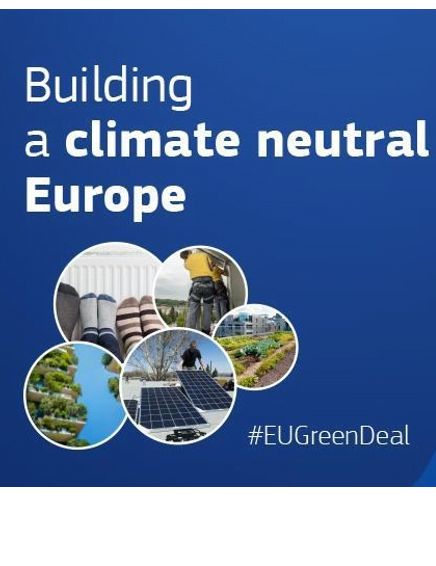News

Thirty-five million buildings will be renovated by 2030. That is what the European Commission aims to achieve with the Renovation Wave. At the same time, this is the objective and contribution to reduce CO2 emissions in the building sector. And: to keep global warming at a maximum of two degrees.
The increase in CO2 in our atmosphere is unbalancing the world. Climate change is leading to more natural disasters, the Red Cross recently reported in the World Disasters Report 2020. And climate change is not only unbalancing nature. Research by Ipsos, commissioned by ABN AMRO, shows that 75% of people in the Netherlands are concerned about climate change and about 80% say the country must reduce its impact on the environment. With the Renovation Wave, the European Commission has aimed its arrows to combat the source of global warming with a reason. The built environment has an impact on the environment. The European housing stock is responsible for approximately 36% of the energy-related greenhouse gas emissions. In addition, approximately 85% of the buildings were built before 2001 and therefore less energy efficient. The time to act is now. So roll up your sleeves.
The Renovation Wave: greening buildings, creating jobs and improving lives
The European Commission aims to at least double the renovation rate over the next ten years and to ensure that renovations lead to more energy and resource efficiency. The financial injection of the Renovation Wave will not only improve the energy performance of millions of buildings, it will create around 160,000 new jobs in the European construction sector. It stimulates digitization and improves the reuse and recycling of materials. Last but not least: the quality of the lives of the people using and living these buildings will also be improved.
EFL is working on it
The European Federation for Living (EFL) is working together with its members and partners through various projects to make the housing stock more sustainable. Many results have already been achieved. And the knowledge that has been gained is actively shared within the network. For example, in project CHARM we work on circular construction and renovation strategies for social housing associations. The TRIME project actively involved tenants and made them aware of their behaviour. It became clear that consciously dealing with energy yielded money. Double profit. EFL is currently also working with its members on a future project aimed at the renovation of existing homes in the European framework program Horizon 2020.
EFL in European projects
We are closely following the developments of the Renovation Wave and will be including more information on the subject on our website in 2021. EFL is always looking for new members to form application consortia and to carry out projects. We prefer Dutch housing associations with concrete renovation projects that are sustainable or circular in design and implementation. Interested in participating in European projects and in participating in EFL? Please contact Joost Nieuwenhuijzen via info@ef-l.eu.
